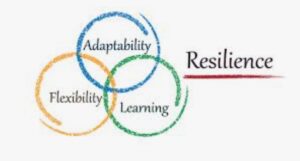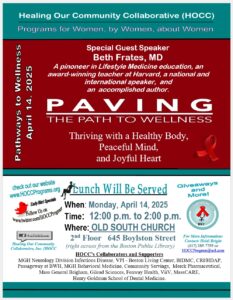
Resilience is the ability to bounce back from hardship, to recover quickly from challenging situations, and to continue to adapt and move forward. Being resilient means that you possess the mindset and skills to keep yourself from overthinking your situation or feeling stuck in the past, and to believing that you can handle any situation. Three traits related to resilience are: adaptability, learning, and flexibility.
The past few months and even today we have certainly been challenged and our flexibility and resilience is evolving each day as we adjust to the many lifestyle changes demanded by the current govermental fluency. When we react to changes, our go-to habits help determine how resilient we are. When we are emotionally resilient, we can allow ourselves self-compassion, to not dwell on the negatives, and to reach out for help if we need it. Social supports such as family, friends, community or church groups can provide people with valuable support in times of crisis. When we learn and grow from past experiences, we are better able to cope with future adversity.
Resilience is a reflex, a way of facing and understanding the world that is etched into a person’s mind. Resilient people face reality (acceptance) with steadfastness, find meaning (purpose) of the hardship instead of crying out in despair, and improvise solutions from thin air (flexibility). This is the nature of resilience.
Yes, things a very difficult for most people today and the challenges are great! Resiliency takes time, strength, and help from people around you. Even if you experience setbacks along the way – you got this! You are a resilient HOCC woman – surround your HOCC community!
Always keep your focus on self care. Remain true to yourself and always know HOCC’community will always be here for you… Join us this coming April 14th for a very special program “Paving Your Path to Wellness” with Beth Frates, MD. Remeber, the second Monday of each month – there is always a seat waiting for you at HOCC…
https://hbr.org/2002/05/how-resilience-works:Harvard Bus Rev:Diane Couto. Accessed 6/14/22.
APA Resilience: ttps://www.apa.org/topics/resilience


